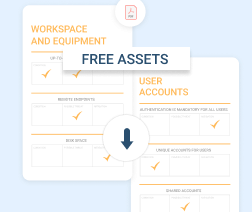One of the hottest new technologies on the market in 2023 so far is ChatGPT. This artificial-intelligence-powered chatbot has incredible capabilities around answering questions, creating content, monitoring networks, automation, and more.
For managed services providers (MSPs) looking to follow the latest trends and adopt the most up-to-date technologies, ChatGPT has the potential to be a powerful tool for many key functions to better support customers, as well as to help MSPs to operate their own businesses better. While the tool only launched at the end of November 2022, there are already many use cases that MSPs can use today.
There are a few places where an MSP could consider leveraging ChatGPT today. One way is to improve customer service. ChatGPT can be programmed to respond to frequently asked questions and provide clients with real-time support, either in chat or via email. This can help reduce the workload of MSPs — something more important than ever amidst a global IT talent shortage — and ensure that clients get the help they need quickly.
Additionally, some MSPs are also using ChatGPT to generate marketing content. ChatGPT could be a great place to start writing blogs, newsletter emails, customer explainers on different technologies, and other marketing copy. This could help MSPs to up their game when it comes to marketing, without having to hire additional marketing staff.
Further reading 5 Ways to Improve Sales and Marketing
ChatGPT could also be used to handle some of the functional tasks within an organization. For instance, it could be leveraged to generate code to automate many tasks within the MSP business, such as applications, automation, scripts, and other items. While code generated in this way will likely need to be reviewed for accuracy and effectiveness, having a foundation to start with versus starting from scratch could save MSP engineers and support staff significant time.
These capabilities could also be used to help MSPs enhance security for their customers. ChatGPT could create scripts and code, for instance, to help MSPs monitor networks and alert them to potential security threats, such as suspicious login attempts or unusual network activity. This could help MSPs take proactive steps to protect their clients' data.
While they tap into the potential of ChatGPT, MSPs will also want to understand its potential risks. For instance, cybersecurity researchers at CyberArk recently showed an example of how their researchers were able to bypass ChatGPT content filters and insert malicious code, or how they could create code using ChatGPT to generate ransomware scripts or other types of malware. These are just a few examples of how ChatGPT may be used for nefarious means, and MSPs will want to ensure they are carefully vetting any content they leverage from the tool to ensure they remain protected.
ChatGPT promises to be a powerful tool for individuals, businesses, and MSPs. Although it cannot solve all business and technology challenges (at least not yet), leveraging it on its own or employing tools that have it built in could open a whole new realm of AI-driven possibilities. For MSPs, it presents a real opportunity to help improve efficiency and support customers in the best way possible with the teams they have in place.
Only a few months after the initial launch and with further updates on the horizon, this is the beginning of the possibilities for what ChatGPT and other artificial-intelligence-based technologies might do. MSPs that keep up to date with the latest developments in this technology will prove themselves as trusted advisors to their customers for many years.





